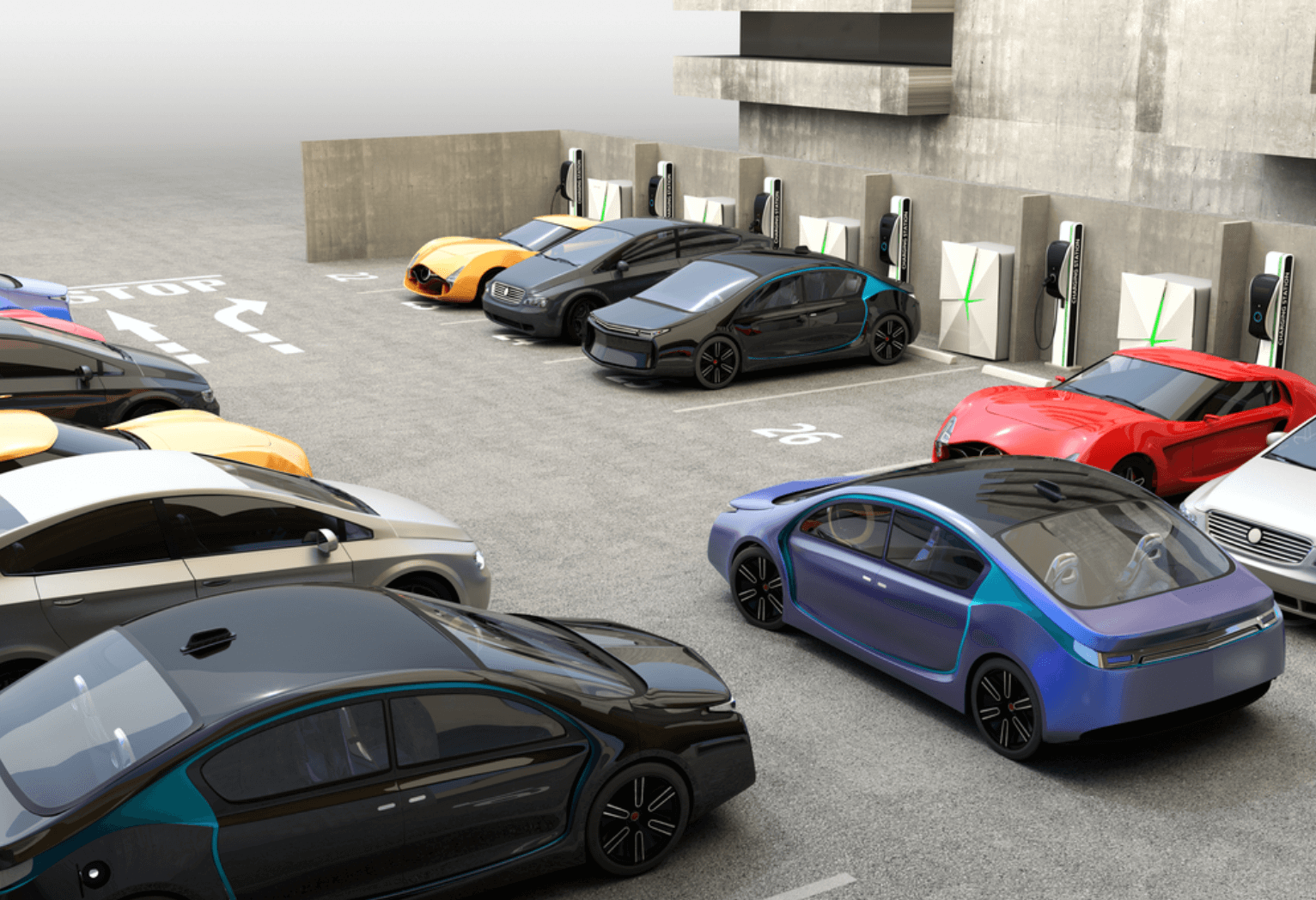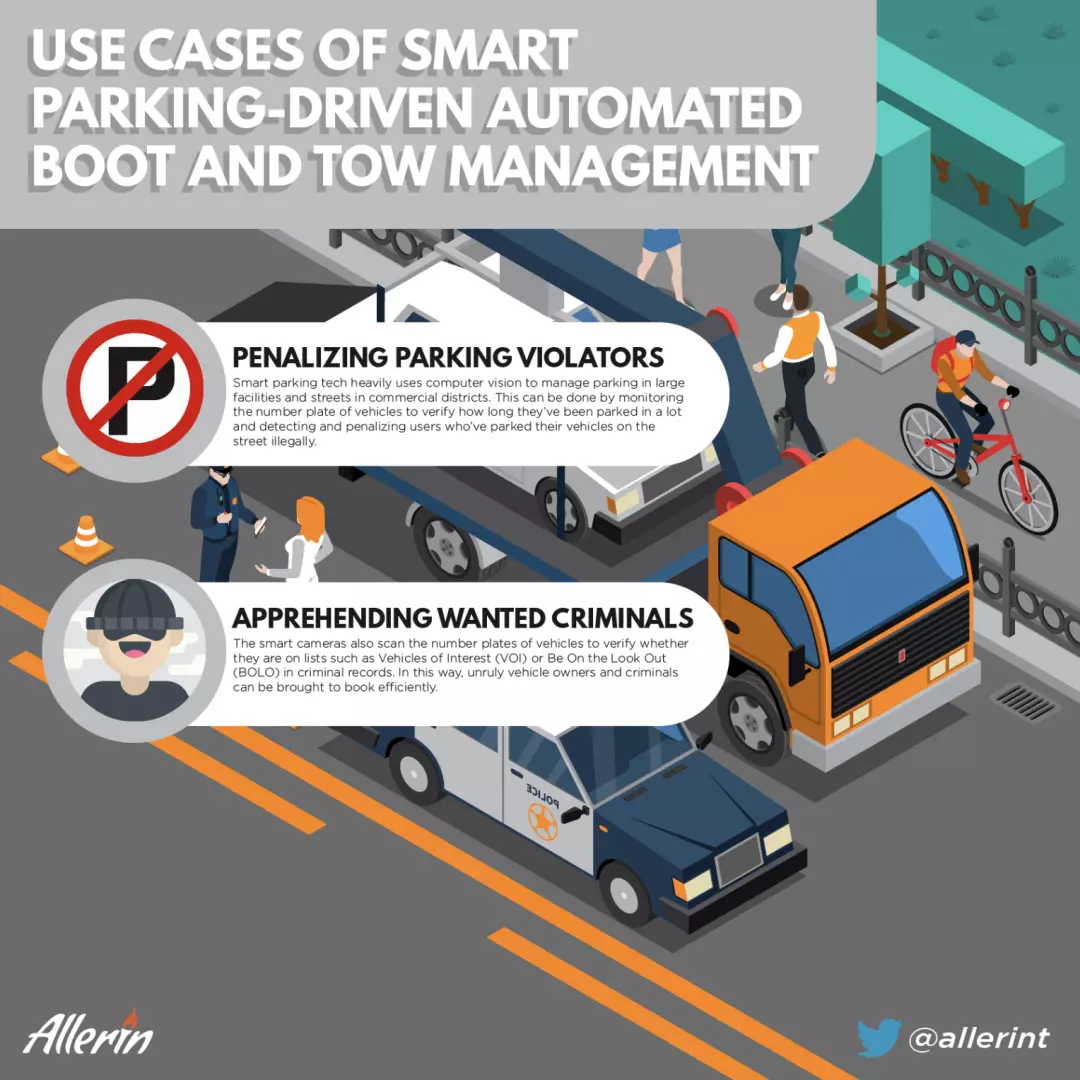Comments
- No comments found

It is hard to overstate the importance of vehicle and space management, especially in busy commercial districts.
Such zones have the highest number of vehicles as well as spatial congestion, traffic problems, pollution, and, ultimately, accidents and deaths. Such problems primarily stem from poor parking management and handling of regulation violators. Smart parking facilities and tools employ AI and computer vision in order to assist parking enforcement officers and traffic police with addressing violations. This is similar to how law enforcement agencies use computer vision to carry out smart city policing.

Smart parking tech heavily uses computer vision to manage parking in large facilities and streets in commercial districts. This means that smart cameras are installed in multiple places in such zones to monitor vehicular movement, on-street parking, regulatory violations and other actions. Impressively, the monitoring is carried out without the need for human intervention.
An example of parking violation being monitored can be—the detection of vehicles protruding out of their allotted parking slot, vehicles parked in the wrong slot (a sedan parked in a slot meant for hatchbacks), users parking their vehicles in slots meant for the handicapped, and other kinds of violations. Once these instances are detected by the smart cameras in a parking facility, the smart parking system can alert a nearby parking officer about it. Additionally, the system can fine users directly, debiting the penalty amount off their bank account through their mobile app.
The system monitors the number plate of vehicles to verify how long they’ve been parked in a lot. If such vehicles exceed their allotted parking time, they can be penalized. What’s more, this is also useful to detect and penalize users who’ve parked their vehicles on the street illegally.
The aforementioned smart cameras also scan the number plates of vehicles to verify whether they are on lists such as Vehicles of Interest (VOI) or Be On the Look-Out (BOLO) in criminal records. If a match is found, the system notifies a regional law enforcement department about it as soon as the vehicle is detected.
In both these cases, the smart parking system can autonomously notify regional boot and tow management bodies about violations or vehicles belonging to criminals. Once the notification is received, such bodies can initiate the towing of such vehicles (and the arrest of criminals) immediately. In this way, unruly vehicle owners and criminals can be brought to book efficiently.
Aside from penalizing parking violators and apprehending criminals, smart parking technology also plays a significant role in optimizing parking space usage. Through computer vision and AI-powered analytics, smart parking systems can monitor parking patterns and occupancy rates. This data is then used to provide real-time updates to drivers about available parking spaces, helping them find a spot more efficiently and reducing the time spent searching for parking.
Moreover, smart parking facilities can implement dynamic pricing models based on demand and availability. During peak hours or high-traffic events, parking rates can be adjusted to encourage turnover and ensure a steady flow of vehicles in and out of the facility. This not only maximizes the utilization of parking spaces but also generates additional revenue for the city or parking operators.
The integration of computer vision with smart parking systems also enables better traffic management in commercial districts. By analyzing traffic patterns and flow, authorities can identify areas with congestion and take proactive measures to alleviate traffic jams. This could involve adjusting traffic signal timings, implementing one-way traffic routes, or diverting vehicles to less congested routes.
Additionally, smart parking technology facilitates the creation of data-driven insights for urban planners. By studying parking and traffic data, city authorities can make informed decisions regarding the expansion of parking facilities, construction of new roads, or the implementation of public transportation options.
Efficient parking management not only reduces traffic congestion but also contributes to environmental sustainability. With fewer vehicles circling around in search of parking spaces, carbon emissions are significantly reduced. Moreover, smart parking facilities can integrate electric vehicle charging stations, encouraging the adoption of eco-friendly transportation options.
By promoting sustainable practices, smart parking systems align with broader environmental initiatives aimed at combating pollution and climate change.
Naveen is the Founder and CEO of Allerin, a software solutions provider that delivers innovative and agile solutions that enable to automate, inspire and impress. He is a seasoned professional with more than 20 years of experience, with extensive experience in customizing open source products for cost optimizations of large scale IT deployment. He is currently working on Internet of Things solutions with Big Data Analytics. Naveen completed his programming qualifications in various Indian institutes.
Leave your comments
Post comment as a guest